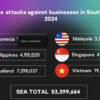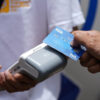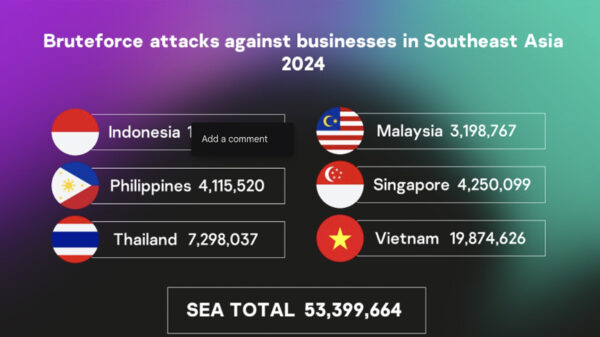In the middle of the pandemic, it was revealed in a recent Kaspersky survey that when it comes to online security, Filipinos are now most concerned about their online activities such as dating and meeting people (86%) as well as their financial transactions (85%) and shopping activities (75%).
These online activities are what the respondents said they used to do mostly face-to-face long before the COVID-19 pandemic hit the country.
In the same survey, more than half of those asked think that running “trustworthy” apps from Google Play and App Store (67%) and antivirus scans (65%) are enough ways to keep themselves feel safe online. About 56% of the respondents shared that they are changing passwords on each of their devices for online safety.
One-third of the participants, 42% of whom are parents, admitted to purchasing AV software to protect their home devices.
These findings were part of a global survey conducted online by Kaspersky and London-based research agency Sapio Research to find out people perceive our “digital comfort zones” and how the pandemic has impacted these views.
The survey results were gathered in May 2020 from 19 countries including the Philippines, and compiled in a report titled, More Connected Than Ever Before: How We Build Our Digital Comfort Zones.
Being among the most active cybercitizens in the world, Filipinos appeared to have logged more time on the internet now as more work and personal activities were forced to shift online. Since lockdown was imposed in key cities in the country, 59% are actively spending an extra two to more than 20 hours online than before the quarantine situation began, according to the survey.
Despite having a sharp increase in online activities, 88% of Filipino participants believe that their digital lifestyle is safe for their privacy. And Kaspersky experts find this alarming.
“Many people think that they are not interesting to a cybercriminal, but we constantly see news about data breaches and widespread phishing campaigns stealing valuable personal data from ‘normal’ people,” said David Jacoby, Senior Security Researcher at Kaspersky.
He cited as an example the usual strategy of cybercriminals, when planning a big attack on a business, of targeting any person in an organization.
“Cybercriminals use various psychological tricks to make people open phishing emails and click on suspicious links. So it’s crucial that ordinary people follow cybersecurity rules to help protect your valuable data,” said Jacoby.
Kaspersky also warns Internet users against not getting enough online protection particularly those who are performing banking and shopping transactions online.
“Mobility restrictions have pushed Filipinos to do online banking and yes, even retail therapy has surged dramatically during this period. With this scenario that we think is our new normal for the next months or so, we encourage everyone to equip yourselves with even basic cybersecurity knowledge to protect your hard-earned money from cybercriminals. No one is really under the radar,” said Mary Grace Sotayco, Territory Manager for the Philippines at Kaspersky.
According to Kaspersky, online fraud is an easy type of cybercrime as a criminal doesn’t need to be physically fit, be adept with social skills or even programming experience to do it. The cybercriminal only needs to release phishing sites and malware apps to push people to hand their money to them.
An example of Internet scamming that is the most popular form of cybercrime in the 21st century is phishing, which only seeks to get an Internet user’s credentials through deception.
Phishing sites are copycats of legitimate and credible organizations. Meanwhile, phishing messages usually take the form of fake notifications from banks, service providers, retail merchants, e-pay systems, and other companies. Such notification tries to encourage the recipients to urgently enter/update their personal data. Other phishing tools are fake social media pages, usually these are accounts of the victim’s friends’ that they would normally trust.
Kaspersky advises Filipino netizens not to assume that the only thing scammers want are your credit card or financial data. Many phishers would be perfectly happy with getting access to your user credentials in an email service or social network which they can sell in the black market.
How to avoid phishing? The cybersecurity company recommends:
- Use common sense, first and foremost. Stay calm and do not fall victim to provocations.
- Take a thorough look at links and websites. Input URLs manually instead of simply clicking on a link.
- When getting suspicious links from a friend or colleague, confirm that it was indeed them who sent the message.
- Regularly update your antivirus software, especially if it offers anti-phishing capabilities such as the Kaspersky Total Security.
- Choose an AV product that offers protection for banking and shopping transactions. Kaspersky Total Security, for instance, launches encrypted browsers for these kinds of online activities that require confidential data.
- Beware of fake communications. Most financial organizations will never send emails asking customers to send personal data via email, visit site for authorization, or enter personal data in pop-up windows.
- When shopping, instead of using your main credit card or debit card, opt for a special card that you can use only for online purchases and which has a limited credit limit for your protection.
- Always ensure that the OS and apps on your computer and other devices have the latest updates installed. This will help eliminate the possibility of having your device exploited by malware.


















































































































